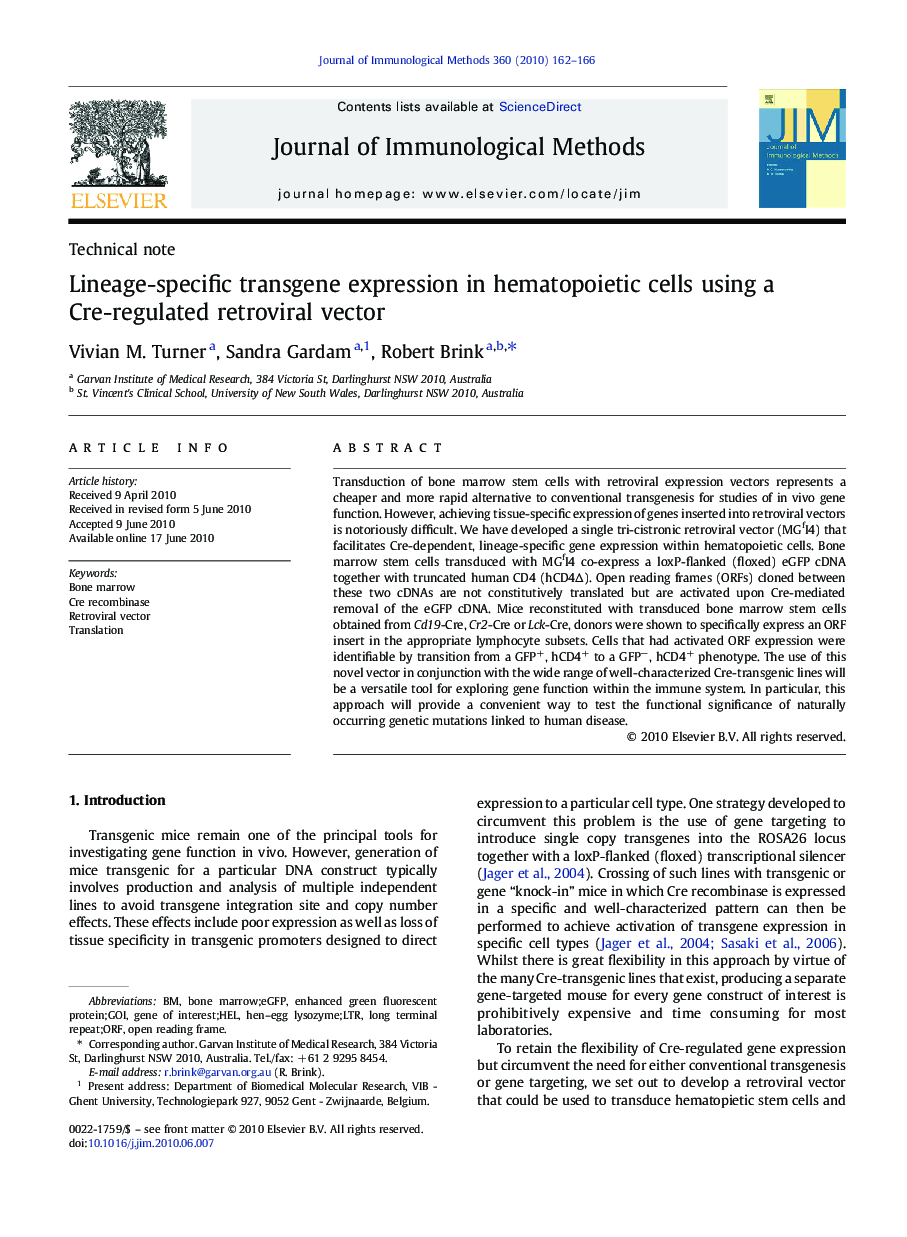| Article ID | Journal | Published Year | Pages | File Type |
|---|---|---|---|---|
| 2088761 | Journal of Immunological Methods | 2010 | 5 Pages |
Transduction of bone marrow stem cells with retroviral expression vectors represents a cheaper and more rapid alternative to conventional transgenesis for studies of in vivo gene function. However, achieving tissue-specific expression of genes inserted into retroviral vectors is notoriously difficult. We have developed a single tri-cistronic retroviral vector (MGfI4) that facilitates Cre-dependent, lineage-specific gene expression within hematopoietic cells. Bone marrow stem cells transduced with MGfI4 co-express a loxP-flanked (floxed) eGFP cDNA together with truncated human CD4 (hCD4Δ). Open reading frames (ORFs) cloned between these two cDNAs are not constitutively translated but are activated upon Cre-mediated removal of the eGFP cDNA. Mice reconstituted with transduced bone marrow stem cells obtained from Cd19-Cre, Cr2-Cre or Lck-Cre, donors were shown to specifically express an ORF insert in the appropriate lymphocyte subsets. Cells that had activated ORF expression were identifiable by transition from a GFP+, hCD4+ to a GFP−, hCD4+ phenotype. The use of this novel vector in conjunction with the wide range of well-characterized Cre-transgenic lines will be a versatile tool for exploring gene function within the immune system. In particular, this approach will provide a convenient way to test the functional significance of naturally occurring genetic mutations linked to human disease.
